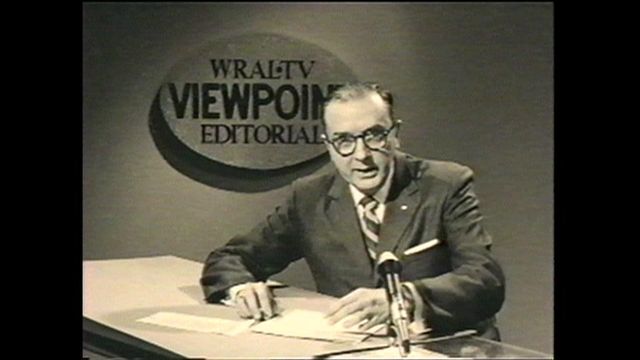Jesse Helms' FBI file: Death threats, spying and vote-buying accusations
Death threats, spying and vote-buying accusations are all included in the nearly 1,600 pages of just-released FBI documents into the life of the late Jesse Helms.
Posted — UpdatedThe WRAL Investigates team filed a Freedom of Information Act request last year to get the files on North Carolina's longest-serving senator. Helms died on July 4, 2008, at 86 after years of declining health.
The documents show the former five-term U.S. senator had plenty of enemies and that he thought his own government was one of them.
During his 30 years in the Senate, Helms built a career as a powerful and sometimes polarizing leader. To some, he was the champion of the conservative movement. To others, he was a champion of bigotry as he opposed the women's, civil and gay rights movements.
In some cases, the threat-makers were interviewed and determined to be harmless. Others were sent to prison.
Helms even thought he was targeted by the government. In a 1986 letter to then-Attorney General Edwin Meese, he asked for an investigation into unnamed agencies, accusing them of following him on a trip to Chile and leaking information to the media. A Helms staff member told FBI agents there was also speculation that Helms' office on Capitol Hill was bugged.
The FBI also looked into accusations that Helms' office paid members of the black community $50 each to not vote in the 1978 election, when Helms faced heated opposition from Democrat John Ingram.
An unnamed source gave a written and typed letter to agents detailing rumors that the Helms camp gave $10,000 to former Raleigh Mayor Clarence Lightner to distribute to the black community so they would stay home on election day. The sources for those rumors are unknown.
After looking into the voting fraud accusations for a few days, the FBI closed the investigation without taking any action.
Lightner's son, Bruce Lightner, released a statement to the media Wednesday and said he had reviewed the FBI documents. He called the accusations against his father "ridiculous and absurd to the furthest degree possible."
"I can say, without any reservation or equivocation whatsoever that my Dad would never do anything to suppress anyone from voting. My Daddy, like most African Americans did not like or agree with anything Jesse Helms stood for. Period," Lightner said in a statement.
Another page in the FBI file shows Ku Klux Klan members were trying to raise money for Helms so he would speak to their group, but no follow-up report is included in the file.
Among the many documents is a 43-page file that notes Helms was willing to assist the FBI while he was employed as executive vice president, vice chairman of the board and assistant CEO of Capitol Broadcasting Company, the parent company of WRAL-TV and WRAL.com.
He was named an official "contact" for the FBI field office in Charlotte in the early 70s.
"Mr. Helms is most cooperative and has offered the facilities of his station to assist the FBI at any time," according to the documents. "He is a great admirer of the Director (J. Edgar Hoover) and the FBI and for a long period of time has been a staunch defender of the Director and his policies."
Helms worked at WRAL prior to serving in the U.S. Senate. Once he became a senator, he was no longer an official "contact" for the FBI, according to the records.
All together, the nearly 1,600 pages give a behind-the-scenes snapshot at the life of North Carolina's most controversial politician.
Related Topics
• Credits
Copyright 2024 by Capitol Broadcasting Company. All rights reserved. This material may not be published, broadcast, rewritten or redistributed.






